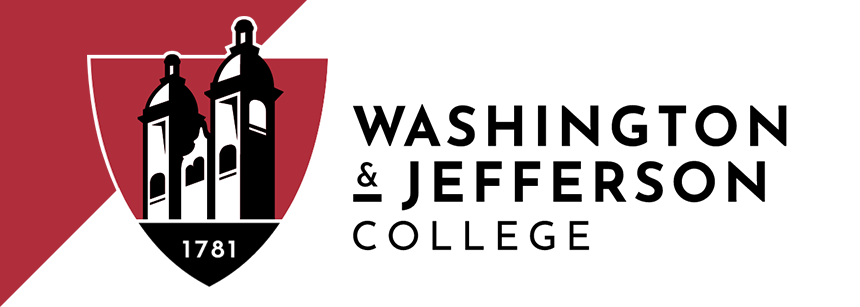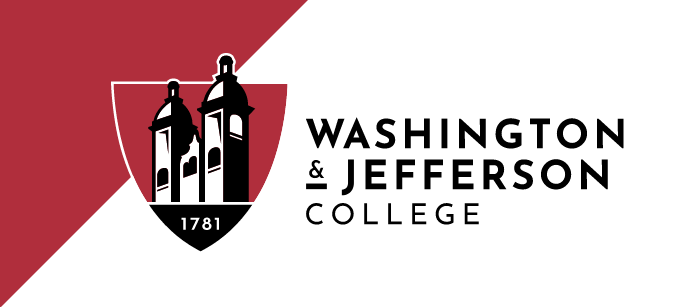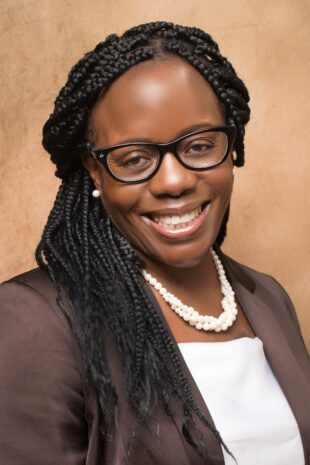The nursing major is available to students who desire hands-on experiential learning grounded in the liberal arts tradition. The four-year program is a collaboration between Washington & Jefferson (W&J) College and the Washington Health System School of Nursing (WHSSN) that leads to a Diploma in nursing with Registered Nurse (RN) from WHSSN, and a Bachelor of Science in Nursing (BSN) degree from W&J.
Nursing
Major / Minor
Nursing Snapshot
Washington & Jefferson (W&J) College has a long history preparing students for success in the health professions to include graduates furthering their academic studies in medicine and other health-related fields. Continuing in this tradition of preparing pre-health professionals, the College established a Bachelor of Science in Nursing (BSN) program in 2023 to be taught in partnership with Washington Health System School of Nursing (WHSSN). A unique feature of the BSN program is a clinical partnership with WHSSN, which has 126 years of experience in nursing education through its 16-month diploma Registered Nurse (RN) program. On May 8, 2023, the collaborative agreement was signed, and the result is a four-year collaborative curriculum agreement between Washington & Jefferson College and the Washington Health System School of Nursing that leads to a diploma in nursing with RN from WHSSN, and a BSN degree from W&J. The BSN program is built upon the solid foundation of developing registered nurses with exceptional competence, leadership potential, and commitment to the highest ethical standards. The first cohort of students will enroll in the Fall of 2024 to begin year one pre-nursing courses of the four-year academic collaborative curriculum BSN degree plan.
Our Mission
The mission of the BSN program is to prepare a highly qualified, competent, and educated diverse student population to practice professional nursing through innovation and service. We are committed to creating a student-centric learning environment grounded in academic rigor with the blending of the liberal arts and sciences, and the science of nursing that will enhance the essential skills and abilities needed for the discipline of nursing creativity, critical thinking, clinical reasoning, and clinical competence in complex care settings. The W&J nursing collaborative curriculum serves to promote faculty and student contribution to the health of all populations through an enriched academic experience with students’ immersion in direct patient care clinical, skills laboratory, and high-fidelity simulation experiential learning. Our program is centered on evidence-based intellectual curiosity grounded in interdisciplinary thinking, and reflects our core values of uncommon integrity, respect for diversity, and responsible global citizenship.
Our Philosophy
The faculty believes that nursing is a scientific discipline that requires a combination of ethical knowing and rigorous intellectual preparation weaved through theoretical knowledge, spirit of inquiry, and personal and professional transformation. As such, the faculty consider their roles as practitioners and educators pivotal in the achievement of student learning outcomes through capacity of faculty caring, empathy, effective teaching, and effective learning. This philosophy demonstrates the BSN program commitment to the College’s motto: Juncta Juvant: Together We Thrive
Our Vision
The vision of the program is to produce highly qualified baccalaureate nursing graduates dedicated to providing optimal care in complex care settings across the lifespan of the communities and populations they serve.
Core Values
The nursing program core values are synonymous with W&J values of Excellence, Uncommon Integrity, Respect for Diversity, Inclusivity, and Caring. These core values are grounded in the arts and sciences, and they reflect the discipline of nursing through teaching, evidence-based research and rigorous inquiry, practice, and scholarship.
- Excellence
- We think carefully
- Uncommon Integrity
- We teach the whole student
- Respect for Diversity
- We explore beyond boundaries
- Inclusivity
- We engage with the world
- Caring
- We give back
The BSN program of study prepares graduates to:
- Use evidence-based nursing knowledge to provide holistic nursing care that promotes healing and wellness.
- Apply critical thinking and clinical reasoning skills in the delivery of quality and safe person-centered care that is developmentally appropriate to populations across the health care continuum.
- Engage in intra- and inter-professional collaborative partnerships to optimize care and enhance the healthcare experience of individuals, families, and communities.
- Commit to personal and professional development, enact a professional identity that reflects a commitment to lifelong learning, contribute to evidence-based nursing practice through ongoing quality improvement processes, demonstrate appropriate use of communication and information technologies in care delivery, and apply leadership and management principles in the delivery of care.
- Foster a culture of ethical decision-making and transparency in health policy advocacy in the delivery of person-centered care across the lifespan of populations and communities.
Nursing
The nursing major is available to students who desire hands-on experiential learning grounded in the liberal arts tradition. The four-year program is a collaboration between Washington & Jefferson (W&J) College and the Washington Health System School of Nursing (WHSSN) that leads to a Diploma in nursing with Registered Nurse (RN) from WHSSN, and a Bachelor of Science in Nursing (BSN) degree from W&J.
All students completing Bachelor of Science in Nursing (BSN) program are expected to have achieved the following end of program student learning outcomes. The EPSLO are based on The Essentials: Core Competencies for Professional Nursing Education (2021) by the American Association of Colleges of Nursing.
- Demonstrate clinical judgment founded on a broad knowledge base of the understanding of the nursing discipline and will apply theory and research-based knowledge from nursing, the arts, humanities, and other sciences in decision making for nursing practice.
- Apply evidence-based knowledge as the basis for providing person-centered, high quality safe and effective care delivery using effective and compassionate communication, active participation, engagement, and empowerment in the care of individuals, families, important others, communities and across the lifespan.
- Incorporate collaborative activities including development of interventions and policies targeting population health concepts, principles, and perspectives, across a continuum of care services to strive for health equity and improved health for individuals, families, important others, and communities.
- Demonstrate the ability to assess evidence-based research carefully and systematically in the process of improving health, health care, and health outcomes in diverse populations and across the lifespan.
- Apply evidence-based quality improvement principles, strategies, and interventions utilizing both system effectiveness and individual performance to create and maintain a physically, psychologically, secure, and just environment that contributes to a culture of promoting patient safety across the four spheres of care.
- Collaborate with interprofessional team members from multiple disciplines, patients, families, communities, and other stakeholders in the creation of highest quality of care and health outcomes of value for the patients, families, important others, and the community served.
- Describe the relationship between internal and external system processes and organizational structures as they relate to system inequity, structural competencies in health equity, cost containment, performance metrics, and impact of health disparities and social determinants of health on care outcomes across the continuum of care.
- Use information and communication technology tools in accordance with ethical, legal, policies, professional, and regulatory standards to gather data, develop clinical evidence-based decision-making in the delivery of safe nursing care to diverse populations in a variety of settings within the four spheres of care.
- Translate the American Nurses Association (ANA) Code of Ethics into professional practice and display actions that aligned with ethical behaviors, respect for life and human dignity, best nursing practices standards, integrating diversity equity and inclusion as a core to professional identity across communities, populations, and healthcare settings.
- Use personal, professional, and leadership development activities that demonstrate self-awareness, reflective practice, a spirit of inquiry, commitment to lifelong learning, and professional growth.
First Year Courses
Fall Semester
| Course # | Course Name | Credits |
|---|---|---|
| FYS 199 | First Year Seminar | 4 |
| ENG 111 or 112 | Composition* | 4 |
| BIO 103 | Human Anatomy & Physiology I* | 4 |
| PSY 103 | Introduction to Psychology for Nursing* | 4 |
| PHA | Physical Activity - Does not have to be taken in first semester | 2 |
| NUR 050 | Pre-Nursing Seminar I* | 1 |
Spring Semester
| Course # | Course Name | Credits |
|---|---|---|
| NUR 051 | Pre-Nursing Seminar II* | 1 |
| PSY 263 | Lifespan Developmental Psychology* | 4 |
| Modern Languages | Modern Languages If an elective is needed, priority should be given to four credit courses focusing on visual and communication arts to meet the total credit hours required to graduate with a BSN degree | 4 |
| Bio 104 | Human Anatomy & Physiology II* | 4 |
| BIO 115 | Microbiology in Nursing and Allied Health* | 4 |
*All pre-requisite courses required for nursing must be completed with a grade of C (2.0) or better in each required course prior to applying for admission to the Washington Health System School of Nursing (WHSSN) diploma program for admission and enrollment in the WHSSN core nursing courses and continuing in W&J integrated courses required in the sophomore year. Dual enrollment at W&J and WHSSN will occur in the sophomore and junior years of the BSN program of study.
Second Year Courses
Fall Semester
| Course # | Course Name | Credits |
|---|---|---|
| Nursing 100 | Theory & Clinical This course will be offered at the Washington Health System School of Nursing | 13 |
| Modern Languages | Modern Languages If an elective is needed, priority should be given to four credit courses focusing on visual and communication arts to meet the total credit hours required to graduate with a BSN degree | 4 |
Spring Semester
| Course # | Course Name | Credits |
|---|---|---|
| Nursing 200 | Theory & Clinical This course will be offered at the Washington Health System School of Nursing | 12 |
| SOC 101 | Introduction to Sociology | 4 |
Third Year Courses
Fall Semester
| Course # | Course Name | Credits |
|---|---|---|
| Nursing 300 | Theory & Clinical This course will be offered at the Washington Health System School of Nursing | 12 |
| BIO 112 | Human Nutrition Successful completion of this course will satisfy the 2-credit Physical Health & Wellness requirement | 3 |
Spring Semester
| Course # | Course Name | Credits |
|---|---|---|
| Nursing 400 | Theory & Clinical This course will be offered at the Washington Health System School of Nursing | 13 |
| NUR 410 | Career Readiness & Role Transition | 1 |
| PHL 232 | Bioethics | 4 |
Completion of dual enrollment. Students who complete WHSSN program requirements and pass the National Council Licensure Exam for the RN (NCLEX-RN) will receive a Registered Nurse (RN) Diploma from WHSSN.
Active unencumbered RN licensure is required for continuation into the post-licensure RN-BSN final year of studies.
Fourth Year Courses
Fall Semester
| Course # | Course Name | Credits |
|---|---|---|
| NUR 420 | Nursing Health Assessment | 4 |
| NUR 421 | Promoting Community and Public Health | 4 |
| ARTIS | Artistic Designated Course can be taken prior to senior year | 4 |
| NUR 430 | Research and Evidence-Based Practice in Nursing | 3 |
Spring Semester
| Course # | Course Name | Credits |
|---|---|---|
| NUR 431 | Leadership & Management for Professional Nursing Practice | 3 |
| NUR 440 | Health Policy, Economics, & Informatics for Nurses | 3 |
| NUR 441 | Care of Vulnerable Populations | 2 |
| NUR 450 | Transcultural Perspectives in Nursing | 2 |
| MTH 125 | Introductory Statistics Can be taken prior to senior year | 4 |
| NUR 451 | Family Centered End of Life Care | 2 |
| NUR 499 | Senior Nursing Capstone | 2 |
The collaborative nursing curriculum leading to a Bachelor of Science in Nursing (BSN) program is designed to prepare students for a full immersion in experiential learning early in their studies.
Students admitted to Washington & Jefferson College collaborative nursing curriculum are enrolled in W&J general education first year coursework in preparation for applying to WHSSN Diploma Program.
In the second year of the collaborative nursing curriculum, students accepted into WHSSN Diploma program will simultaneously complete WHSSN didactic and clinical courses, experiential learning experiences to include skills laboratory, high-fidelity simulation learning, and clinical rotation, and additional liberal arts courses required for the BSN degree at W&J.
In the third year, students will continue with simultaneous completion of WHSSN didactic and clinical courses including the preceptorship experience working under the supervision of the RN preceptor, and additional liberal arts courses required for the BSN degree at W&J. At the end of the third year of enrollment, successful graduates of WHSSN will receive a Diploma of Nursing and are eligible to take the National Council Licensure Examination (NCLEX-RN) for licensure to practice as a Registered Nurse (RN). Active unencumbered RN Licensure is a requirement to progress to Year Four of the RN-BSN section of the collaborative nursing curriculum.
Upon successful completion of the WHSSN diploma program and attainment of active RN Licensure, students continued in W&J RN-BSN post-licensure curriculum to complete required college courses, remaining requirements, and upper-level baccalaureate nursing course work to fulfill the graduation requirements of the BSN degree.
All students in their senior year will complete a community and public health practicum experience under the supervision of W&J faculty and a senior nursing capstone requiring students to complete a research project on an identified relevant and current clinical practice problem.
There are many opportunities available to nursing graduates to work in various specialties and care settings providing direct patient care in the hospital, ambulatory, or home care settings.
Nursing specialty opportunities include but are not limited to:
Maternal Newborn, Pediatrics, Medical Surgical, Psychiatric Mental Health, Acute Care, Critical Care, Intensive Care, Emergency Medicine, Surgical and Operating Room Nurse, School Nurse, Correctional Nursing, Occupational Health Nurse, Forensics, Rehab Nursing, Gerontological Care, Home Health and Hospice, Nurse Informaticists, Public Health Nurse, Utilization and Review, and Legal Nurse Consultant.
BSN graduates pursuing further graduate studies and doctoral degrees can find opportunities to include but not limited to:
Advanced Registered Nurse Practitioners (APRN) in various Certification Specialties, Nurse Educators, Certified Registered Nurse Anesthetist, (CRNA), Chief Nurse Officer, Nurse Executive, and Academic Chairs/Deans.
U.S Bureau of Labor Statistics Occupational Outlook Handbook (Register Nurses) https://www.bls.gov/ooh/healthcare/registered-nurses.htm
Washington & Jefferson (W&J) College is institutionally accredited by Middle States Commission on Higher Education. The BSN program will apply for programmatic accreditation from the Commission on Collegiate Nursing Education (CCNE), the national accreditation agency for baccalaureate and graduate nursing programs.


